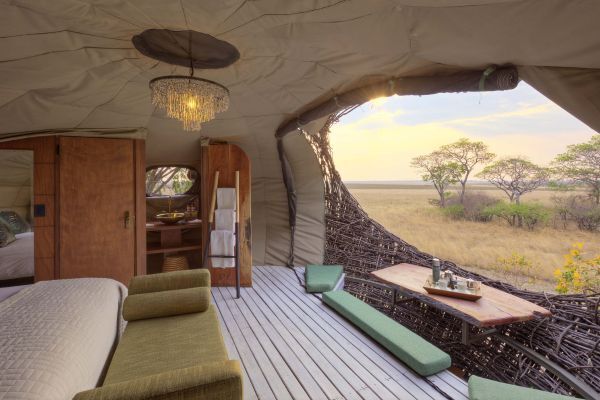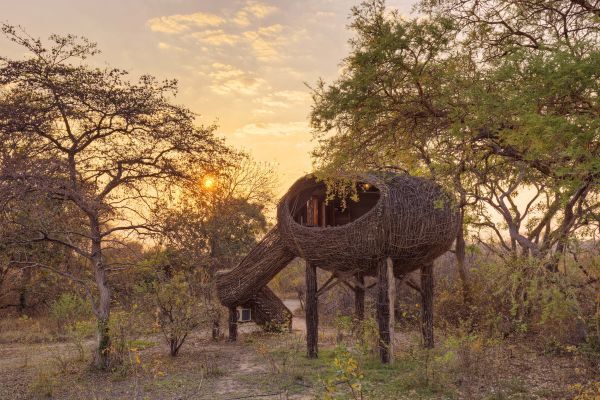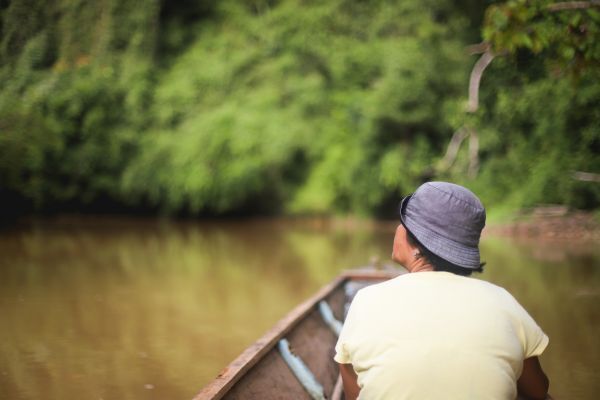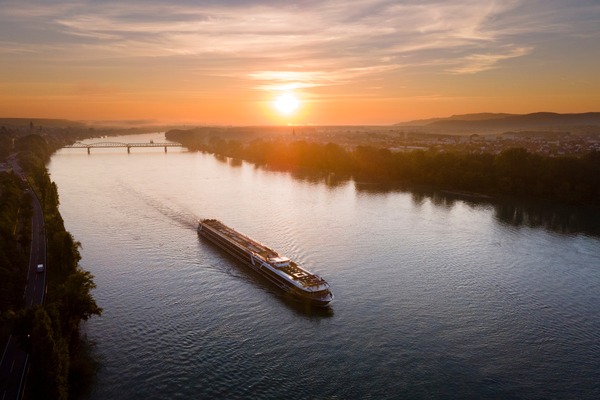Time for action: how can the luxury travel sector become more sustainable?
With its higher carbon footprint per passenger, the luxury travel industry is perhaps more duty-bound than some to find alternative ways to provide a more sustainable product. So how is it taking the lead?
Sustainability is an issue that has become increasingly hard to ignore, with overtourism protests taking place in major destinations and climate activists attempting to block cruise ships from entering ports such as Amsterdam in recent months.
Luxury travel is also in the firing line with its higher carbon footprint per passenger, due to the increased use of premium airline cabins and hotel suites.
But there’s so much more to sustainability than reducing emissions from travel (as challenging as that is), with most clients more focused on ensuring their trips benefit local communities in destinations.
There are also multiple other aspects to sustainability, including reducing waste and single-use plastics, improving biodiversity, animal welfare and human rights.
So how is the luxury travel sector tackling this gargantuan challenge? Pretty much every travel company now has some sustainability plan and targets in place (or at least it should have). But even this can be fraught with danger, as some parts of the sector, particularly airlines, have been accused of “greenwashing” in their marketing.
Operator action
There is a seemingly endless range of different sustainability certification schemes but one of the most popular among travel companies is to go through the process of becoming a B Corp.
This requires organisations to scrutinise all elements of their operations, both in the UK and in their destinations, to ensure they meet the highest environmental and social standards – TTG Media itself went through this process to achieve B Corp status in December 2023.
Several operators have also gone down the B Corp path, including Experience Travel Group, Audley Travel, Inside Travel Group and most recently, Wild Frontiers.
“B Corp forced us to consider areas where we previously perhaps had good intentions but did not have a measurement or a tangible, actionable plan in place”
Sam Clark, co-founder of Experience Travel Group, says: “It gave us a structure to think about sustainability on an ongoing basis. We’d always considered it – the long-term health of our business depends upon the long-term sustainability of our destinations – but we didn’t have a framework embedded into our organisation before. It forced us to consider areas where we previously perhaps had good intentions but did not have a measurement or a tangible, actionable plan in place.”
Audley Travel’s sustainability manager Sabrina Parker says responsible travel has “always been part of Audley’s DNA”, and third-party schemes, such as B Corp, allow it to benchmark sustainability initiatives and ensure it “aligns with best practice”.
“B Corp is valuable and complementary to our ESG strategy and gives us, our clients and peers assurance that we are approaching sustainability holistically and effectively," adds Parker.
But being a B Corp is only part of the sustainability story and even those companies with the certification admit there is plenty more to be done.
Travel industry-specific options also exist, such as the long-established Travelife scheme. Lusso is one of the operators to sign up to Travelife as part of its sustainability efforts, which have also seen the appointment of Zoe Savage-Morton as the operator’s first responsible tourism and sustainability manager.
“We have undertaken a supplier audit, focusing on identifying partners with responsible and sustainable strategies,” says Savage-Morton. “This helps us promote and market accommodation that is environmentally conscious and socially responsible.”
Highlighting hotels and experiences that are taking sustainability seriously is a key area for operators: for example, Experience Travel Group’s Give Back activities are designed to “make a positive contribution” to education or gender inequality, or to cultural or environmental conservation.
Meanwhile, Audley Travel offers a growing Responsible Choice range of accommodation and excursions in its portfolio, which “stand out” for their sustainability credentials. By the end of this year, Audley expects to have nearly 500 products in this range.

By the end of this year, Audley expects to have nearly 500 products in its Responsible Choice range.
Customer demands
Surveys suggest consumers are becoming more mindful about the sustainability of their holidays – a recent Aito study found that 80% believe it is now important to travel sustainably.
But currently, this does not seem to translate into tangible changes in their booking behaviour. Indeed, the subject of a holiday’s carbon footprint rarely – if ever – seems to be mentioned by luxury clients.
“We haven’t really seen clients ask about sustainability, what we have seen a rise in is clients wanting to do more experiences that positively impact local communities,” confirms Matt Rushbrooke, commercial and product director at Inspiring Travel.
“What we have seen a rise in is clients wanting to do more experiences that positively impact local communities”
Lusso’s Savage-Morton says it’s a similar picture for the agents the operator works with. She adds: “While there’s a noticeable trend in the wider travel industry towards sustainability, we’ve not yet observed a significant increase in sustainability-related enquiries from our travel agents on behalf of their clients as yet.”
Even if consumers aren’t specifically asking for sustainable holidays, more of these types of trips are being introduced to operators’ programmes.
A good example is Sunvil’s increasing range of train trips from the UK to Spain, which takes advantage of new high-speed rail services between Paris and Barcelona.
Sunvil’s managing director, Chris Wright, says: “Spain by train is becoming very popular – about 10% of clients are now using the train to get to Spain. It seems to be more about them having a different experience rather than cutting carbon, although they also do that by going by train. We’re looking to expand these options with new night trains in Europe too.”
Meanwhile, Ponant is now focusing on “slow” travel, which includes limiting passenger numbers to under 200 and reducing the speed of its ships so they burn less fuel per mile during their voyages.
Cruise’s Net-Zero Goal
Similarly to airlines and much of the wider travel industry, the cruise sector is also targeting “net zero” cruising by 2050.
Industry body CLIA is leading efforts to make the sector more sustainable and insists its members’ fleets are becoming “more efficient” each year.
This is being achieved by increasing the use of less-polluting fuel, alongside electric batteries and hydrogen fuel cells, to cut ships’ environmental footprints. Another initiative is reducing emissions in port by enabling ships to plug into shoreside electricity supplies in more destinations.
CLIA also highlights the increasing number of new ships using “cleaner” liquefied natural gas (LNG). While LNG is a fossil fuel, it cuts greenhouse gases by up to 20%, and these ships have engines that can be “easily adapted” to use biofuels when they become “available at scale.”
Sustainability in Luxury Hotels
Sustainability has also become a priority for luxury hotels, and this now means going far beyond removing single-use plastics.
Guests may not even notice some of these initiatives, such as changing taps and showers to cut water consumption, installing motion sensors to reduce lighting use, and providing chargers for electric vehicles.
Franck Sibille, Hyatt’s area vice-president, says each hotel building is the “biggest factor” in becoming carbon neutral, alongside new initiatives such as installing cameras in kitchens to measure and enact plans to reduce food waste.
Six Senses has been on a journey to eliminate plastic from its properties since the brand started in the mid-1990s. Its latest step is the release of the Journey to Plastic Freedom Playbook, featuring 82 solutions for common plastic items in the four main areas of housekeeping, back of house, food and beverage, and spa at hotels.
As part of IHG, Six Senses has shared the guide with 6,400 hotels worldwide and now also wants to share it with the wider industry.
What Can Agents Do?
While most luxury clients do not appear to be clamouring for sustainability-focused holidays yet, it is becoming more of a talking point, with agents often leading this conversation with clients.
Karen Pocock, co-founder of Designer Travel, set up a sustainability initiative at the homeworking agency two years ago and emphasises that they want to talk to clients about sustainability “without ramming it down their throats.”
“Little steps can really make a big difference,” Pocock adds. “We don’t want to greenwash – you have to be honest and take clients with you. We want to be as sustainable as we can be, but in a practical way. It’s hard for agents because you don’t own the product – we want to support organisations that are taking sustainability seriously and not just having a policy on their website.”
“It’s hard for agents because you don’t own the product – we want to support organisations that are taking sustainability seriously and not just having a policy on their website”
Designer Travel’s initiatives include creating a digital storybook about sustainability that is sent to every client, supporting a school in South Africa through charity events, and recently introducing an animal welfare policy, developed with World Animal Protection.
Weekly webinars with suppliers also feature a sustainability section. Oasis Travel founder Sandra Corkin says the company’s agents are increasingly mentioning sustainability projects as “part of the sales pitch,” but she admits it’s “not a driver” in clients’ booking decisions. “We bring it up and it’s part of the conversation, but it’s not influencing what people are doing,” she adds.
While sustainability may not be “front of mind” for most luxury clients when booking, there is also a growing expectation that travel companies should be operating more sustainably in everything they do. In that regard, the sustainability journey is really just beginning.
Sign up for weekday travel news and analysis straight to your inbox

Rob Gill
Supplier Directory
Find contacts for 260+ travel suppliers. Type name, company or destination.














